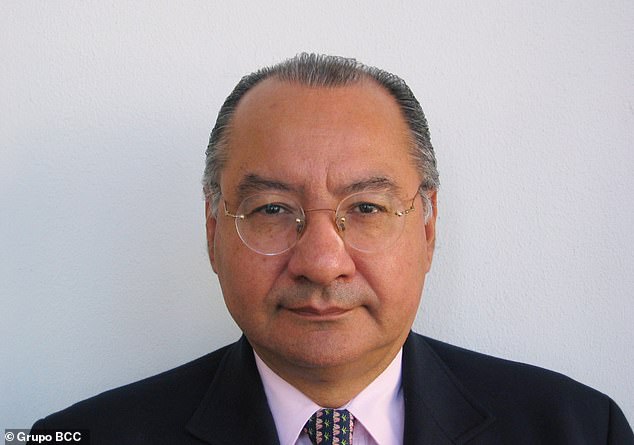A former U.S. ambassador who pleaded guilty to spying for Cuba says he became radicalized while a student at Yale University.
Victor Manuel Rocha, 73, was arrested in December in Miami and accused of collecting intelligence for the rogue communist state since 1981.
His activities came to light after an undercover operation in which he detailed his clandestine activities to Havana and praised Fidel Castro.
While being sentenced Friday to 15 years behind bars, Rocha told the court that it was his time at Yale University that radicalized him into becoming a spy.
In a statement, Rocha said: “During my formative years at the university, I was heavily influenced by the radical politics of the time.”
Victor Manuel Rocha, seen here, was arrested in December in Miami and accused of collecting intelligence for the rogue communist state since 1981.
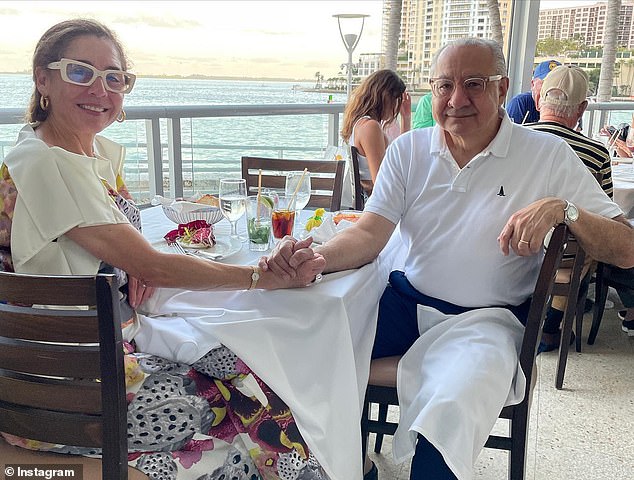
Rocha, seen here with his wife Karla, was arrested in December in Miami and accused of collecting intelligence for the rogue communist state since 1981.
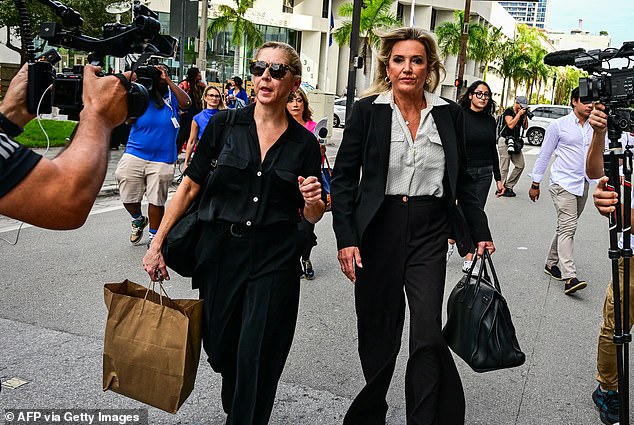
Karla Wittkop, Rocha’s wife (left) and attorney Jacqueline Arango (right), leave the James L. King Federal Courthouse in Miami, Florida, on December 4, 2023.
‘My deep commitment at the time to radical social change in the region led to the eventual betrayal of my oath of loyalty to the United States during my two decades at the State Department.
‘Today I no longer see the world through the radical eyes of my youth. My long and successful transition to the private sector culminated in me becoming a senior international executive in the mining sector for over a decade.
‘The latter, however, cannot erase the damage caused during my previous career working for the Government.
‘I take full responsibility for it and accept the penalty I must pay. I am making important reparations through my unconditional collaboration to those whom I have betrayed.’
Rocha was born in Colombia and moved to New York City at the age of 10, living in Harlem with his widowed mother and two brothers.
According to the South Florida Sun Sentinel, his mother worked in a sweatshop and the family got by on food stamps.
In 1965 he won a scholarship to attend The Taft School, an elite boarding school in Connecticut.
He continued his studies at Yale, where he graduated with honors in Latin American studies and then did graduate work at Harvard and Georgetown.
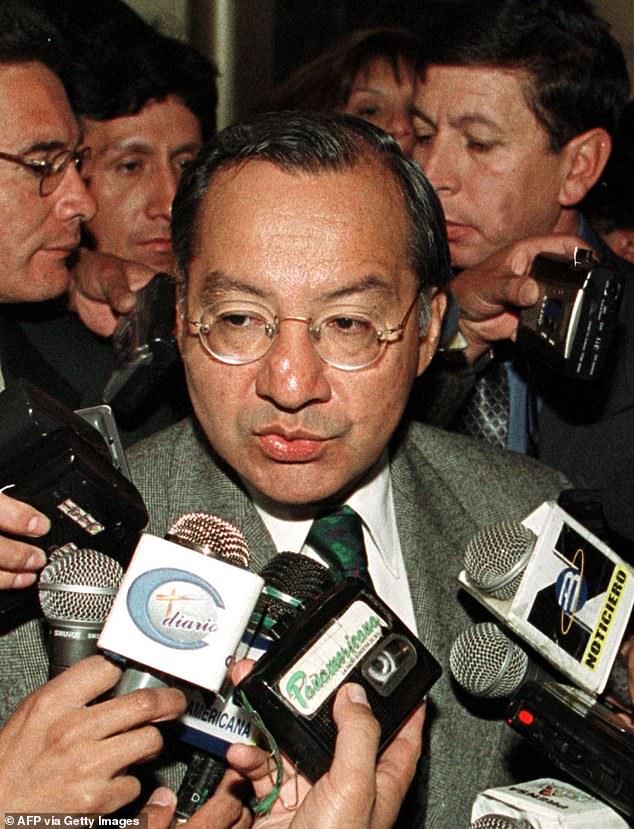
He initially pleaded not guilty in February to charges of conspiracy to act as an agent of a foreign government, but then accepted a plea deal with federal prosecutors in March.
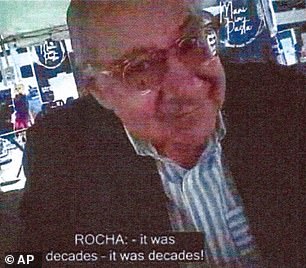
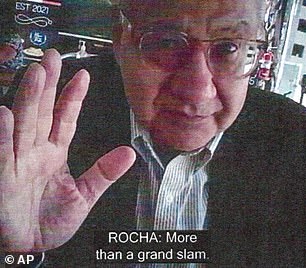
Rocha boasted to an FBI agent posing as a Cuban intelligence officer that the United States was “the enemy” and described his decades-long mission as a “grand slam.”
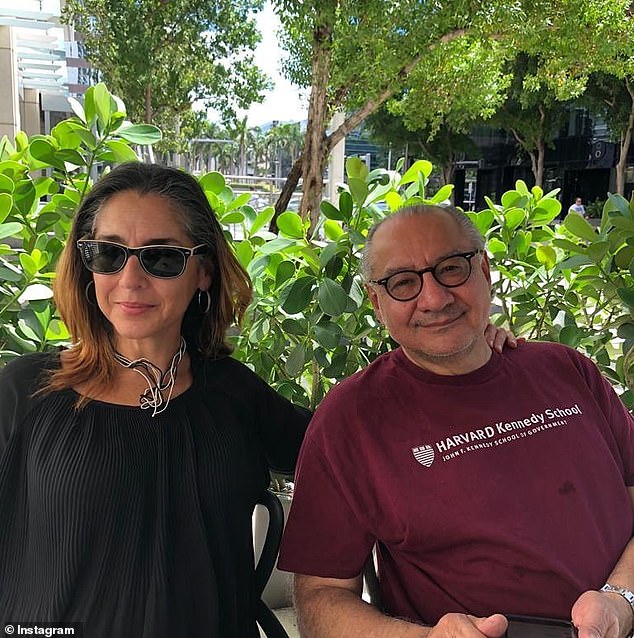
Rocha served on the National Security Council from 1994 to 1995 in the administration of President Bill Clinton.
Rocha joined the State Department in 1981 and rose through the ranks as a career diplomat, also holding posts in Havana, Buenos Aires, Mexico City, the Dominican Republic and Washington.
He began helping Havana as an undercover agent for Cuba’s General Directorate of Intelligence (DGI) in 1981, and his secret activities continued until his arrest.
Rocha served on the National Security Council from 1994 to 1995 during President Bill Clinton’s administration and was ambassador to Bolivia from 2000 to 2002 under Clinton and George W. Bush.
He also served as an advisor to the US military command responsible for Cuba.
Rocha left national service in 2006 and then served as an adviser to the US Southern Command, which oversees Cuba, until 2012.
Rocha was arrested in December for what U.S. officials called “one of the most far-reaching and longest-running infiltrations of the U.S. government by a foreign agent.”
The Bill Clinton-appointed diplomat, a father of two, was living outdoors in Florida with his wife, graphic designer Karla Wittkop Rocha, when he was charged.
He initially pleaded not guilty in February to charges of conspiracy to act as an agent of a foreign government, but then accepted a plea deal with federal prosecutors in March.
Attorney General Merrick Garland, in announcing Rocha’s arrest in December, said he had “repeatedly referred to the United States as ‘the enemy’ and ‘repeatedly boasted about the importance of his efforts.'”
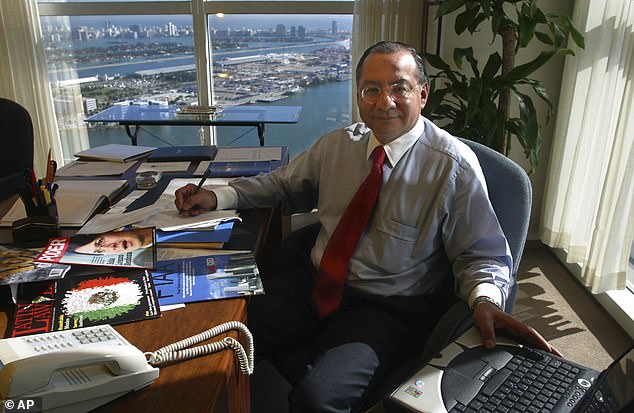
Rocha was born in Colombia and moved to New York City at the age of 10, living in Harlem with his widowed mother and two brothers.
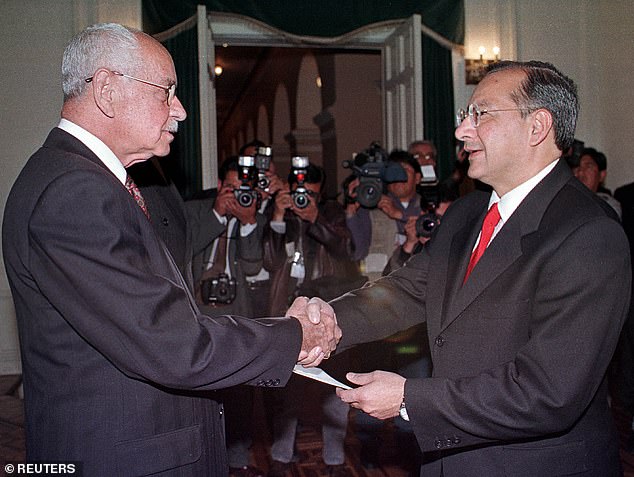
Bolivian President Hugo Banzer shakes hands with Rocha, the new U.S. ambassador to Bolivia, during a ceremony at the Government Palace in La Paz, August 3, 2000.
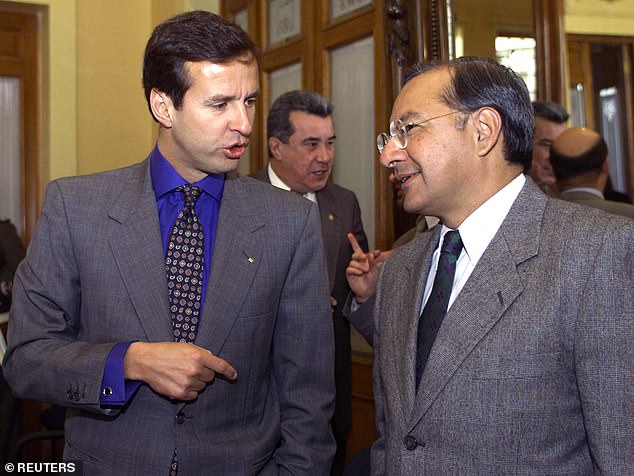
Bolivia’s interim president, Jorge Quiroga (L), talks with Manuel Rocha, US ambassador at the vice presidential office in La Paz, July 11, 2001.
“Rocha always kept his status as a Cuban agent secret to protect himself and others and to allow himself the opportunity to engage in additional clandestine activities,” a criminal complaint reads.
The agent contacted Rocha via WhatsApp claiming to be a representative of ‘your friends in Havana’.
The couple met several times, including once at a food court, where he was asked if he was still “with” Cuba.
His response was “angry” and he responded, “It’s like questioning my manhood.”
He admitted to having traveled to Havana in 2016 or 2017 to meet with his handlers and asked the undercover agent to send “my warmest regards to the Directorate,” referring to the DGI, Cuba’s secret intelligence agency.
Rocha told an undercover agent that the rules for Cuban spies included referring to Havana as “the island” and adopting the persona as politically conservative in the United States.
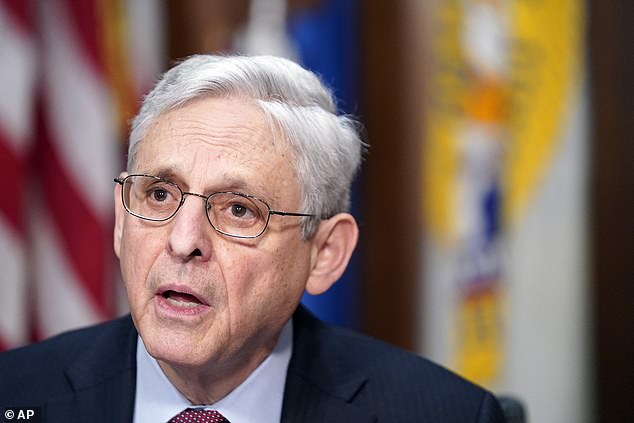
Attorney General Merrick Garland, seen here, said he had “repeatedly referred to the United States as ‘the enemy’ and ‘repeatedly boasted about the importance of his efforts.’
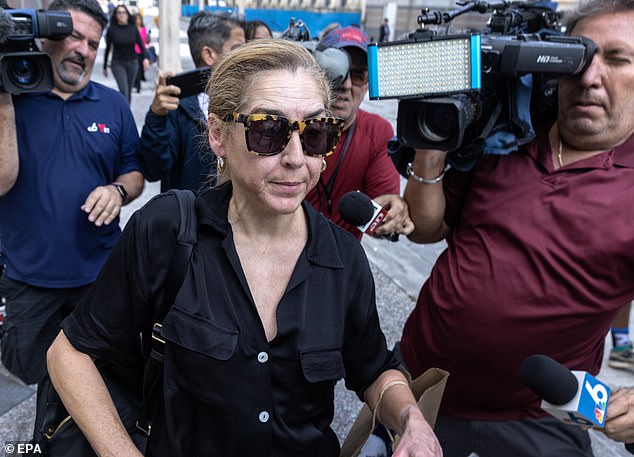
Bill Clinton’s diplomat appointee, a father of two, was living outdoors in Florida with his wife, graphic designer Karla Wittkop Rocha, seen here, when he was charged.
At the time of her initial arrest, Republican María Elvira Salazar reportedly returned Rocha’s $750 donation to her campaign.
In December, a former colleague of Rocha, John Feeley, said Washington Post that the spy was “charming” and “ambitious.” Feeley described him as an expert on Latin American affairs.
At the time of his arrest, Feeley said Rocha had “confronted Donald Trump.” “It was the perfect cover,” Feeley said.
Rocha was sentenced to five years for conspiracy to act as an agent of a foreign government and ten years for acting as a foreign agent to be served consecutively.
Numerous protesters were seen outside the Miami courthouse on Friday, demanding the “maximum sentence” for Rocha.
Judge Beth Bloom told Rocha on Friday: ‘You turned your back on this country time and time again,’ and said she would impose ‘the maximum penalty allowed by law,’ after a three-and-a-half-hour hearing in Miami .


